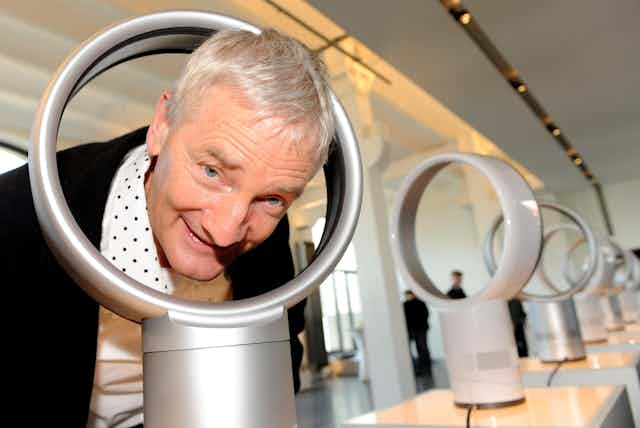If a private company with around 5,000 employees moved its headquarters overseas a few years ago, it might not have attracted much attention beyond concerns for the local economic impact. But these are no ordinary times.
The announcement that Dyson is switching its HQ from the English county of Wiltshire to Singapore has provoked a huge reaction. The company was keen to downplay any possible link between the move and Brexit (of which Sir James Dyson is a vocal supporter). Nevertheless, the news has attracted many critics, many of them not typically engrossed with long term corporate strategy.
There are valid reasons to accept Dyson’s statement at face value when understanding why the HQ move makes business sense. While Dyson still experiences a stable level of growth in its established European and American markets, this is dwarfed by a vast sales increase in Asia.
To capitalise on this growing market, the company has already established Singapore as a production base for its electric cars, along with its assembly work taking place in Malaysia and the Philippines.
Singapore has also recently agreed a bilateral free trade pact with China, allowing Dyson to enjoy a level of market access that would not be available in the UK or the EU.
Dyson was also quick to allay fears regarding its employees in the UK. As production has largely moved overseas in the last decade, nearly all of its workforce in the UK are employed as scientists or engineers (where the majority of their products are designed and developed). And as the company continues to expand its research activities and significantly invest in graduate careers and academic research, there are no clear signs that the move will affect its economic activity in the UK for the foreseeable future.
While this all gives Dyson a defence for a strategic move, it is also easy to understand why this announcement has attracted criticism. First, the timing is notable, in a week when several other companies drew attention for their strategic decisions.
These include Sony (which is moving its European headquarters to the Netherlands), P&O (re-flagging its UK registered English Channel fleet to Cyprus) and Pets at Home (announcing a possible stockpiling of its inventories).
What’s different about these announcements is their explicit link to issues concerning Brexit. This pragmatism was also evident in the CEO of Airbus hinting at relocating the company’s operations. (He was also very blunt about the damage that a no-deal Brexit could potentially cause.)
Business abhors a vacuum
While it may be perfectly true that Dyson’s relocation has little to do with Brexit, announcing it when many other businesses are publicly expressing opinions on Brexit (that on the surface appear quite opposed to Sir James’s personal views) means it is inevitable that it will be discussed in the context of the surrounding news.
Another factor gives critics of Brexit further ammunition against Dyson. The move to Singapore appears to highlight the perceived disconnect between Brexit’s most affluent supporters and concerns over average living standards in the immediate aftermath of any Brexit.
For well-known figures such as Dyson, any public support of Brexit can risk accusations of being out of touch with ordinary citizens (ironically, a similar charge to that often levelled at visible Remain campaigners).
Some polling has shown that the majority of those supporting Brexit fall into the older demographic, generally citing ideological reasons rather than economic ones. The particular danger that business figures such as Dyson face when championing Brexit as an ideology, is that their economic situation will come under scrutiny. This in turn may strengthen perceptions that any economic changes to the country will not personally affect them or their quality of life.
As a result, any comments they give on the state of the economy, such as Sir James’s “hope (that the UK economy) will bounce back” in February 2018, can come across as quite glib.
That said, criticism on social media probably means very little to Dyson as a company, which continues to enjoy unrivalled success in the UK and overseas. But this episode shows that business figures (particularly those expressing strong views on Brexit) need to be aware of how much more examination their comments and decisions will attract.

